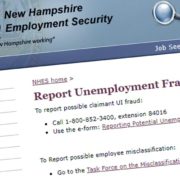Beware of IRS Scams: Four Things You Should Know
The tax deadline has officially passed, making it a busy time of year for the IRS, which is now tasked with processing millions of returns. Unfortunately, this time of year also often brings out scammers and bad actors impersonating the IRS, trying to access your personal information and even your finances.
Do you know how to identify when you may be falling victim to a scam artist? Here are some of the new tactics scammers are using to trick taxpayers into falling for their schemes.
- Snail Mail to your Residence Regarding an Unclaimed Refund
The scammers send mail in a cardboard envelope from a delivery service. This letter has the IRS masthead and the notice reading “in relation to your unclaimed refund.” The letter is well-designed, looking very similar to something you would receive from the IRS. However, the phone number listed is not a number associated with the IRS. Additionally, the letter will request sensitive information, such as requiring an emailed photocopy of a driver’s license to claim the refund. Pay attention to the wording and punctuation of these letters to help possibly identify a fraudulent IRS letter. - Emails or Text Alerts
IRS scammers will also try to email or text you that certain information may need to be updated immediately. Clicking on the provided links typically brings you to a fake website intended to mimic the official IRS website. Please note: The IRS will never email or text you regarding urgent matters on a bill or refund.
- In-Person Visits
Scammers sometimes physically appear at your doorstep, impersonating an IRS agent requesting sensitive information. The IRS notes that this scam tactic has been on the rise. In an article posted by the IRS in July 2023, they announced that effective immediately, surprise visits to a taxpayer’s residence by any IRS agency officer would end and be replaced by a mailed letter, known as a 725-B, to schedule a follow-up meeting.
- Phone Calls
The biggest concern with phone call schemes is that they often seem very real, as the IRS sometimes calls a taxpayer if necessary. Fortunately, there are some factors to keep in mind if you need clarification on the authenticity of a call. First, the IRS will NEVER demand immediate payment or request that payments be made using a specific method, such as a prepaid card, gift card, or wire transfer. The IRS will also never threaten a taxpayer by saying they will involve law enforcement to have the taxpayer arrested for not taking proper action.
Do you have questions about IRS activity that you feel may have been a scam? Contact the team at Leone, McDonnell & Roberts today to discuss your concerns with a qualified financial professional.










